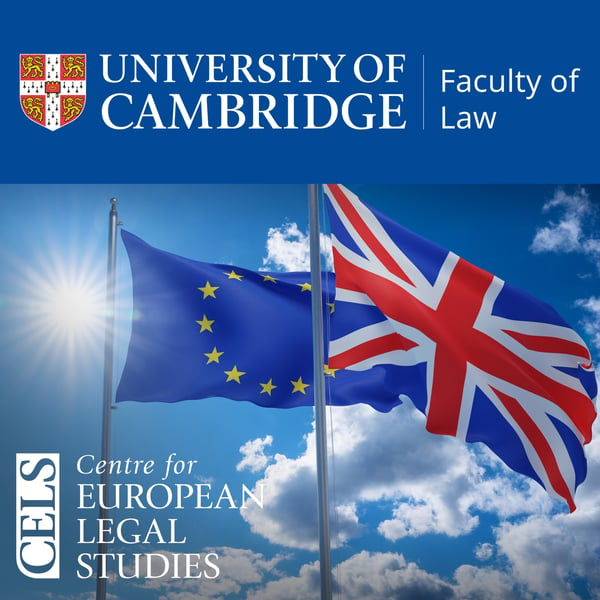CELS Online seminar: 'The German Constitutional Court's decision on PSPP: Constitutional earthquake?' (audio)
Cambridge Centre for European Legal Studies (CELS) Podcast
Faculty of Law, University of Cambridge
0 • 0 Ratings
🗓️ 13 May 2020
⏱️ 58 minutes
🧾️ Download transcript
Summary
Transcript
Click on a timestamp to play from that location
| 0:00.0 | Well, good afternoon everyone. |
| 0:07.0 | It's wonderful to have so many of you at this cell's lunchtime seminar. |
| 0:14.0 | This is the first time we've done a lunchtime seminar on a webinar and all of us are trying to learn how to use and master the technology. |
| 0:26.6 | So if anything goes wrong, it's obviously entirely our fault, but we are trying and I hope you'll bear with us if there are some glitches. |
| 0:34.6 | I would like to start by saying thank you for giving up your lunch times to come and |
| 0:41.3 | hear this webinar. We're going to have three presentations of about 10 minutes each. |
| 0:47.3 | First of all from Alithia Hinaherios, my wonderful colleague from Cambridge, then from Marcus Gearing, also my wonderful colleague here at Cambridge, and then from Michael Vibel, who was also at Cambridge until he went for a wonderful trip to Vienna and is currently at the university there. I'm not going to give lengthy |
| 1:11.5 | introductions to them all because they're all excellent. In terms of logistics, once they |
| 1:16.6 | have talked for 10 minutes each, so half an hour, we'll open the floor to questions. There |
| 1:22.7 | is a Q&A button at the bottom of your screen and so if you want to submit questions in the |
| 1:31.0 | course of the presentations please do so and my colleague Mohammed Musa will help look at the |
| 1:38.8 | questions and try and sort them in some sort of order and then we'll pass them on to |
| 1:43.8 | the relevant panelists afterwards |
| 1:46.0 | and Dan Bates who is acting in the background is going to try and coordinate this whole operation. |
| 1:52.0 | So this judgment clearly extremely important that's why so many of you have signed up to it |
| 2:00.0 | and I think it raises a number of issues for us all. |
| 2:04.6 | First of all, as lawyers, what about the judgment? |
| 2:06.6 | Is the judgment itself? |
| 2:08.6 | Is it a good one? Is it coherent? |
| 2:10.6 | Is it, dare I say, comprehensible? |
| 2:12.6 | Does it make economic sense? |
| 2:15.6 | What were they trying to do? What's the court actually want the ECB to do as a result? |
... |
Please login to see the full transcript.
Disclaimer: The podcast and artwork embedded on this page are from Faculty of Law, University of Cambridge, and are the property of its owner and not affiliated with or endorsed by Tapesearch.
Generated transcripts are the property of Faculty of Law, University of Cambridge and are distributed freely under the Fair Use doctrine. Transcripts generated by Tapesearch are not guaranteed to be accurate.
Copyright © Tapesearch 2025.

